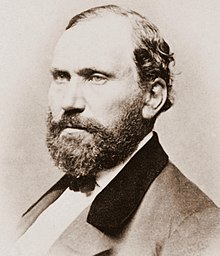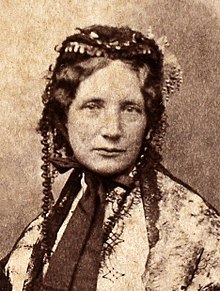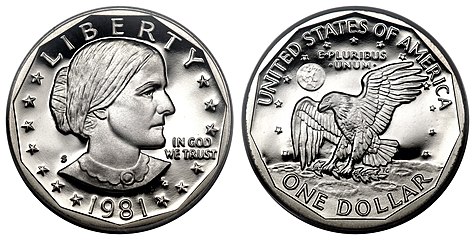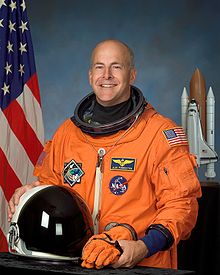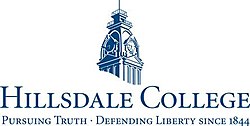July 1 is the 182nd day of the year (183rd in leap years) in the Gregorian calendar. There are 183 days remaining until the end of the year. The end of this day marks the halfway point of a leap year. It also falls on the same day of the week as New Year’s Day in a leap year.
Holidays
- Armed Forces Day (Singapore)
- Canada Day, formerly Dominion Day (Canada)
- Children’s Day (Pakistan)
- Christian feast day:
- Communist Party of China Founding Day (China)
- Doctors’ Day (India)
- Earliest day on which CARICOM Day can fall, while July 7 is the latest; celebrated on the first Monday in July. (Guyana)
- Earliest day on which Constitution Day can fall, while July 7 is the latest; celebrated on the first Monday in July. (Cayman Islands)
- Earliest day on which Heroes’ Day can fall, while July 7 is the latest; celebrated on the first Monday in July. (Zambia)
- Earliest day on which St Pauls Carnival can fall, while July 7 is the latest; celebrated on the first Saturday in July. (Bristol)
- Earliest day on which Youth Day can fall, while July 7 is the latest; celebrated on the first Sunday in July. (Singapore)
- Emancipation Day (Netherlands Antilles)
- Keti Koti (Emancipation Day)) (Suriname)
- Hong Kong Special Administrative Region Establishment Day (Hong Kong)
- Independence Day (Burundi), celebrates the independence of Burundi from Belgium in 1962.
- Independence Day, celebrates the independence of Rwanda from Belgium in 1962.
- International Tartan Day (Australia and New Zealand)
- July Morning tradition (Bulgaria)
- Madeira Day (Madeira)
- Memorial Day (Newfoundland and Labrador)
- Moving Day (Quebec)
- Republic Day (Ghana)
- Independence Day (Somalia)
- Sir Seretse Khama Day (Botswana)
- Territory Day (British Virgin Islands)
- The first day of Van Mahotsav, celebrated until July 7. (India)
History
In AD 69, Tiberius Julius Alexander orders his Roman legions in Alexandria to swear allegiance to Vespasian as Emperor.
In 552, Battle of Taginae: Byzantine forces under Narses defeat the Ostrogoths in Italy. During the fightings king Totila is mortally wounded.
In 1097, Battle of Dorylaeum: Crusaders led by prince Bohemond of Taranto defeat a Seljuk army led by sultan Kilij Arslan I.
In 1200, sunglasses were invented in China to conceal the eyes of judges while sitting in court.
In 1431, The Battle of La Higueruela takes place in Granada, leading to a modest advance of Castilian during the Reconquista.
In 1523, Johann Esch and Heinrich Voes become the first Lutheran martyrs, burned at the stake by Roman Catholic authorities in Brussels.
In 1535, Sir Thomas More went on trial in England, charged with treason for rejecting the Oath of Supremacy.
In 1569, Union of Lublin: the Kingdom of Poland and the Grand Duchy of Lithuania confirm a real union; the united country is called the Polish–Lithuanian Commonwealth or the Republic of Both Nations.
In 1653, First meeting of the Westminster Assembly of Divines
In 1690, Glorious Revolution: Battle of the Boyne (as reckoned under the Julian calendar). Here the Army of England’s Protestant King, William III, defeats former Roman Catholic king James II in the Battle of the Boyne in Ireland, winning the Crown of Britain and Ireland.
In 1766, Jean-François Lefebvre de la Barre was a young French nobleman, famous for having been tortured and beheaded before his body was burnt on a pyre along with a copy of Voltaire’s “Philosophical Dictionary” nailed to his torso for the crime of not saluting a Roman Catholic religious procession in Abbeville, France.
In 1770, Lexell’s Comet passed closer to the Earth than any other comet in recorded history, approaching to a distance of 0.0146 a.u.
In 1782, American privateers attack Lunenburg, Nova Scotia see Raid on Lunenburg (1782).
In 1784, Wilhelm Friedemann Bach, German composer (b. 1710) dies. He the second child and eldest son of Johann Sebastian Bach and Maria Barbara Bach, was a German composer and performer. Despite his acknowledged genius as an organist, improviser and composer, his income and employment were unstable and he died in poverty.
In 1820, The first toll was collected on the Erie Canal. The Erie Canal connected the Hudson River with the Great Lakes.
In 1831, Admiral James C Ross reaches magnetic North Pole.
In 1837, A system of the civil registration of births, marriages and deaths is established in England and Wales.
In 1847, the first national adhesive U.S. postage stamps went on sale; they were 5-cent stamps bearing a likeness of Benjamin Franklin and a 10-cent stamp with a picture featuring George Washington. At that time, the cost of mailing a letter was five cents an ounce, more than it costs a century later from this year.
In 1850, Overland mail delivery west of the Missouri River is organized for the first time on a monthly basis from Independence, Mo., to Salt Lake City, Utah.
In 1855, Signing of the Quinault Treaty: the Quinault and the Quileute cede their land to the United States.
In 1858, Joint reading of Charles Darwin and Alfred Russel Wallace‘s papers on evolution to the Linnean Society.

In 1860, Charles Goodyear, American engineer (b. 1800) dies of heart failure. He was an American self taught manufacturing engineer who invented and developed a process to vulcanize rubber in 1839, which he improved while living and working in Springfield, Massachusetts in 1844, and for which he received patent number 3633 from the United States Patent Office on June 15, 1844. Though Goodyear is often credited with its invention, modern evidence has proven that the Mesoamericans used stabilized rubber for balls and other objects as early as 1600 BC. Goodyear discovered the vulcanization process accidentally after five years of searching for a more stable rubber and stumbling upon the effectiveness of heating. He was among six individuals selected for induction into the National Inventors Hall of Fame.
In 1862, Congress passes the Morrill Act to punish and prevent polygamy in the territories (bad news for Utah). It was signed into law by President Abraham Lincoln on July 2, 1862.
In 1862, The Russian State Library is founded.
In 1862, Princess Alice of the United Kingdom, second daughter of Queen Victoria, marries Prince Louis of Hesse, the future Louis IV, Grand Duke of Hesse.
In 1862, American Civil War: the Battle of Malvern Hill takes place. It is the final battle in the Seven Days Campaign, part of George B. McClellan‘s Peninsula Campaign.
In 1863, Keti Koti (Emancipation Day) in Suriname, marking the abolition of slavery by the Netherlands.
In 1863, American Civil War: the Battle of Gettysburg begins.
In 1863, John F. Reynolds, American general (b. 1820) is killed in battle. He was a career United States Army officer and a general in the American Civil War. One of the Union Army‘s most respected senior commanders, he played a key role in committing the Army of the Potomac to the Battle of Gettysburg and was killed at the start of the battle. On the morning of July 1, 1863, Reynolds was commanding the “left wing” of the Army of the Potomac, with operational control over the I, III, and XI Corps, and Brig. Gen. John Buford‘s cavalry division. Buford occupied the town of Gettysburg, Pennsylvania, and set up light defensive lines north and west of the town. He resisted the approach of two Confederate infantry brigades on the Chambersburg Pike until the nearest Union infantry, Reynolds’ I Corps, began to arrive. Reynolds rode out ahead of the 1st Division, met with Buford, and then accompanied some of his soldiers, probably from Brig. Gen. Lysander Cutler‘s brigade, into the fighting at Herbst’s Woods. Troops began arriving from Brig. Gen. Solomon Meredith‘s Iron Brigade, and as Reynolds was supervising the placement of the 2nd Wisconsin, he yelled at them, “Forward men! For God’s sake forward!” At that moment he fell from his horse with a wound in the back of the upper neck, or lower head, and died almost instantly. Command passed to his senior division commander, Maj. Gen. Abner Doubleday. The loss of General Reynolds was keenly felt by the army. He was loved by his men and respected by his peers. There are no recorded instances of negative comments made by his contemporaries.
In 1867, The British North America Act of 1867 takes effect as the Constitution of Canada, creating the Canadian Confederation and the federal dominion of Canada; Sir John A. Macdonald is sworn in as the first Prime Minister of Canada.
In 1870, The United States Department of Justice formally comes into existence.
In 1873, Prince Edward Island joins the Canadian Confederation.
In 1874, The Sholes and Glidden typewriter, the first commercially successful typewriter, goes on sale.
In 1874, First US kidnapping for ransom, 4-year-old Charles Ross, $20,000.
In 1874, The first zoo in the U.S. opened in Philadelphia. We always thought the first zoo opened at our nation’s Capitol!
In 1878, Canada joins the Universal Postal Union.
In 1879, Charles Taze Russell publishes the first edition of the religious magazine The Watchtower.
In 1881, The world’s first international telephone call is made between St. Stephen, New Brunswick, Canada, and Calais, Maine, United States.
In 1881, General Order 70, the culmination of the Cardwell and Childers reforms of the British Army, comes into effect.
In 1884, Allan Pinkerton, Scottish-American detective (b. 1819) dies. He was a Scottish American detective and spy, best known for creating the Pinkerton National Detective Agency. Pinkerton was born in the Gorbals, Glasgow, Scotland. A cooper by trade, he was active in the British Chartist movement as a young man. Pinkerton married Joan Carfrae (a singer) in Glasgow on 13 March 1842 secretly before moving to America. Disillusioned by the failure to win suffrage, Pinkerton emigrated to the United States in 1842. In 1849 Pinkerton was appointed as the first detective in Chicago. In the 1850, he partnered with Chicago attorney Edward Rucker in forming the North-Western Police Agency,which later became Pinkerton&Co, and finally Pinkerton National Detective Agency and is still in existence today as Pinkerton Consulting and Investigations, a subsidiary of Securitas AB. Pinkerton’s business insignia was a wide open eye with the caption “We never sleep.” As the US expanded in territory, rail transportation increased. Pinkerton’s agency solved a series of train robberies during the 1850s, first bringing Pinkerton into contact with George McClellan, then Chief Engineer and Vice President of the Illinois Central Railroad, and Abraham Lincoln, the company’s lawyer. Following the outbreak of the Civil War, Pinkerton served as head of the Union Intelligence Service in 1861–1862 and foiled an alleged assassination plot in Baltimore, Maryland, while guarding Abraham Lincoln on his way to his inauguration. His agents often worked undercover as Confederate soldiers and sympathizers, in an effort to gather military intelligence. Pinkerton served in several undercover missions under the alias of Major E.J. Allen. Pinkerton was succeeded as Intelligence Service chief by Lafayette Baker. The Intelligence Service was the forerunner of the U.S. Secret Service. Allan Pinkerton died in Chicago on July 1, 1884. It is claimed that the reason was an accident in which Pinkerton slipped on the pavement and bit his tongue, resulting in deadly gangrene. However, reports of the time give different conflicting causes such as Pinkerton succumbing to a stroke (he had survived another one a year earlier) or to malaria he had contracted during a trip to the Southern United States. At the time of his death, he was working on a system that would centralize all criminal identification records, a database now maintained by the Federal Bureau of Investigation.
In 1885, – The United States terminates reciprocity and fishery agreement with Canada.
In 1890, Canada and Bermuda are linked by telegraph cable.
In 1896, Harriet Beecher Stowe, American author and activist (b. 1811) died on July 1, 1896, at age eighty-five in Hartford, Connecticut. She is buried in the historic cemetery at Phillips Academy in Andover, Massachusetts. She was an American abolitionist and author. Her novel Uncle Tom’s Cabin (1852) was a depiction of life for African Americans under slavery; it reached millions as a novel and play, and became influential in the United States and United Kingdom. It energized anti-slavery forces in the American North, while provoking widespread anger in the South. She wrote more than 20 books, including novels, three travel memoirs, and collections of articles and letters. She was influential both for her writings and her public stands on social issues of the day.
In 1898, Spanish–American War: the Battle of San Juan Hill is fought in Santiago de Cuba.
In 1903, Start of first Tour de France bicycle race.
In 1908, SOS is adopted as the international distress signal.
In 1910, Black and Decker is founded by Duncan Black and Alonzo Decker.
In 1911, Germany despatched the gunship Panther to Morocco, sparking the Agadir Crisis.
In 1911, Casimir Funk, a polish biochemist, first used the word ‘vitamins’ to describe certain chemicals required for a healthy diet; “vitamins” is from the Latin word for life, “vita”, and ammonia derivatives, “amine”
In 1911, the self-starter for the automobile was invented by Charles F. Kettering.
In 1915, Leutnant Kurt Wintgens of the then-named German Fliegertruppe air service achieves the first known aerial victory with a synchronized machine-gun armed fighter plane, the Fokker M.5K/MG Eindecker.
In 1916, World War I: First day on the Somme – On the first day of the Battle of the Somme 19,000 soldiers of the British Army are killed and 40,000 wounded.
In 1921, The Communist Party of China is founded.
In 1922, The Great Railroad Strike of 1922 begins in the United States.
In 1923, The Canadian Parliament suspends all Chinese immigration.
In 1930, Northland Transportation Co. extends bus service across the country and changes its name to Greyhound Company.
In 1931, United Airlines begins service (as Boeing Air Transport).
In 1931, Ice vending machines were introduced in Los Angeles (25 lbs., 15 cents.).
In 1935, Regina, Saskatchewan police and Royal Canadian Mounted Police ambush strikers participating in On-to-Ottawa Trek.
In 1942, World War II: first Battle of El Alamein.
In 1942, The Australian Federal Government becomes the sole collector of income tax in Australia as the State Income Tax is abolished.
In 1943, Tokyo City merges with Tokyo Prefecture and is dissolved. Since then, no city in Japan has had the name “Tokyo” (present-day Tokyo is not officially a city).
In 1947, The Philippine Air Force is established.
In 1948, The 5-cent subway ride came to an end in New York City as the price doubled to a dime on this day, bus fare to 7 cents & combo fare at 12 cents.
In 1948, Muhammad Ali Jinnah (Quaid-i-Azam) inaugurates Pakistan‘s central bank, the State Bank of Pakistan.
In 1949, The merger of two princely states of India, Cochin and Travancore, into the state of Thiru-Kochi (later re-organized as Kerala) in the Indian Union ends more than 1,000 years of princely rule by the Cochin Royal Family.
In 1957, The International Geophysical Year begins.
In 1958, The Canadian Broadcasting Corporation links television broadcasting across Canada via microwave.
In 1958, Flooding of Canada’s St. Lawrence Seaway begins.
In 1959, The Party of the African Federation holds its constitutive conference.
In 1959, Specific values for the international yard, avoirdupois pound and derived units (e.g. inch, mile and ounce) are adopted after agreement between the U.S.A., the United Kingdom and other Commonwealth countries.
In 1960, Independence of Somalia.
In 1960, Ghana becomes a Republic and Kwame Nkrumah becomes its first President as Queen Elizabeth II ceases to be its Head of state.
In 1961, Haleakala National Park was established in Hawaii.
In 1962, Independence of Rwanda.
In 1962, Independence of Burundi.
In 1963, ZIP codes are introduced for United States mail. Birthday greetings go out to Mr. Zip of the United States Post Office this day. The familiar character seen on the sides of mailboxes and on posters is now in his late forties. Mr. Zip was introduced to help educate people to use the 5-digit ZIP code (Zone Instant Post, or Zone Improvement Program). Today, Mr. Zip has new members of the family. There are four digits after the original five, to get that mail to you even faster. No matter what you call it it’s still snail mail to us.
In 1963, The British Government admits that former diplomat Kim Philby had worked as a Soviet agent.
In 1966, The first color television transmission in Canada takes place from Toronto.
In 1967, The European Community is formally created out of a merger with the Common Market, the European Coal and Steel Community, and the European Atomic Energy Commission.
In 1967, Canada celebrates the 100th anniversary of the British North America Act, 1867, which officially made Canada its own federal dominion.
In 1968, The CIA’s Phoenix Program is officially established.
In 1968, The Nuclear non-proliferation treaty is signed in Washington, D.C., London and Moscow by sixty-two countries.
In 1968, Formal separation of the United Auto Workers from the AFL–CIO.
In 1970, President General Yahya Khan abolishes One-Unit of West Pakistan restoring the provinces.
In 1972, The first Gay Pride march in England takes place.
In 1976, Portugal grants autonomy to Madeira.
In 1978, The Northern Territory in Australia is granted Self-Government.
In 1979, Sony introduces the Walkman.
In 1979, Susan B. Anthony, an activist for the cause of women’s suffrage, was commemorated this day on a U.S. coin, the Susan B. Anthony dollar. The coin, roughly the size of a quarter, was confused by many with the quarter and the U.S. Treasury Department eventually stopped producing the coins. They took as many as possible out of circulation.
In 1980, “O Canada” officially becomes the national anthem of Canada.
In 1981, The Wonderland murders occurred in the early morning hours, allegedly masterminded by businessman and drug dealer Eddie Nash.
In 1983, A North Korean Ilyushin Il-62M jet en route to Conakry Airport in Guinea crashes into the Fouta Djallon mountains in Guinea-Bissau, killing all 23 people on board.
In 1984, The PG-13 rating is introduced by the MPAA.
In 1987, The American radio station WFAN in New York, New York is launched as the world’s first all-sports radio station.
In 1990, German reunification: East Germany accepts the Deutsche Mark as its currency, thus uniting the economies of East and West Germany.
In 1991, The Warsaw Pact is officially dissolved at a meeting in Prague.
In 1997, China resumes sovereignty over the city-state of Hong Kong, ending 156 years of British colonial rule.
British National (Overseas) is a class of British nationality that was granted by voluntary registration to British Dependent Territories citizens who were Hong Kong residents prior to the transfer of sovereignty to China on 1 July 1997. Individuals with this nationality are British nationals and Commonwealth citizens, but not British citizens. They are subject to immigration controls when entering the United Kingdom and do not have the automatic right of abode there or in Hong Kong, but all would have had permanent resident status in Hong Kong when they acquired this status. This nationality gives its holders favoured status when resident in the United Kingdom and confers eligibility to vote, obtain citizenship under a simplified process, and serve in public office or reserved government positions. About 169,000 individuals currently hold active British passports with this status and may request consular protection when travelling abroad, except in Hong Kong, mainland China, and Macau.
In 1999, The Scottish Parliament is officially opened by Elizabeth II on the day that legislative powers are officially transferred from the old Scottish Office in London to the new devolved Scottish Executive in Edinburgh.
In 2002, The International Criminal Court is established to prosecute individuals for genocide, crimes against humanity, war crimes, and the crime of aggression.
In 2002, Bashkirian Airlines Flight 2937 and a DHL (German cargo) Boeing 757 collide in mid-air over Überlingen, southern Germany, killing 71.
In 2003, Over 500,000 people protested against efforts to pass anti-sedition legislation in Hong Kong.
In 2004, Saturn orbit insertion of Cassini–Huygens begins at 01:12 UTC and ends at 02:48 UTC.
In 2006, The first operation of Qinghai–Tibet Railway in China.
In 2007, Smoking in England is banned in all public indoor spaces.
In 2008, Rioting erupted in Mongolia in response to allegations of fraud surrounding the 2008 legislative elections.
In 2012, Alan G. Poindexter, American captain, pilot, and astronaut (b. 1961) dies due to injuries he received from a personal watercraft accident in Little Sabine Bay off Pensacola Beach, Florida. He was 50. He was an American naval officer, the father of two and a NASA astronaut. Poindexter attended high school at Coronado High School in Coronado, California, graduating in 1979. He received an associate degree in engineering from Pensacola Junior College in Pensacola, Florida in 1983, and then attended Georgia Institute of Technology, graduating with highest honors with a bachelor’s degree of aerospace engineering in 1986. In 1995 he received a master of science degree in aeronautical engineering from the Naval Postgraduate School.
In 2013, Croatia becomes the 28th member of the European Union.
In 2013, The United Nations mission MINUSMA begins its operative mandate in Mali.
In 2013, Neptune‘s moon S/2004 N 1 is discovered.
In 2015, Militants launch attacks on Egyptian Armed Forces checkpoints in North Sinai, leaving dozens of security personnel and insurgents killed.
In 2016, Latvia becomes the 35th member of the Organisation for Economic Co-operation and Development (OECD).



